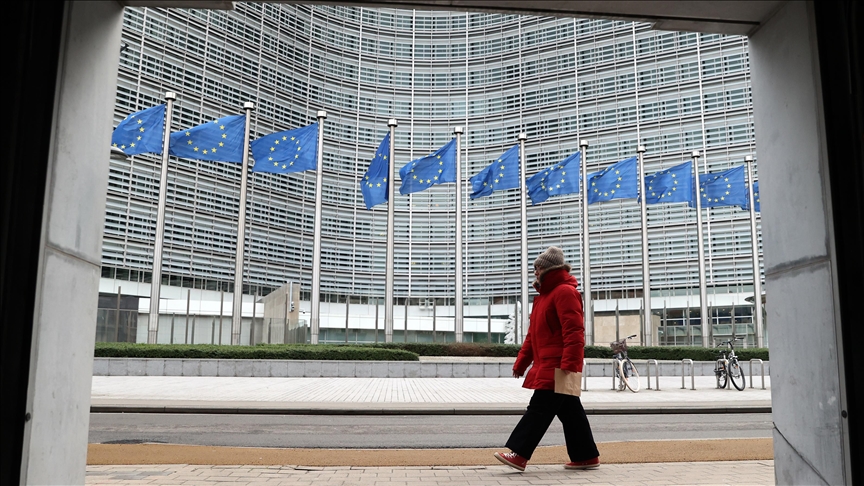OPINION - Europe must match its global ambitions with means
Europe sees the threats it faces and voices the will to respond but lacks the political courage to act. National interests and the fear of domestic backlash from populist movements continue to paralyze the continent’s ability to project power

- Just as economic integration was the founding fathers’ answer to the collapse of European global influence after World War II, political unity must now be the response to the challenges of the 21st century
The author is a policy analyst at the European Policy Centre.
ISTANBUL (AA) - On 9 May 1950, French Foreign Minister Robert Schuman delivered his now-famous declaration, calling for European unity and deeper cooperation on a continent still reeling from the devastation of war. He emphasized that "Europe will not be made all at once," but rather "built through concrete achievements." Seventy-five years later, the EU can point to a range of those achievements: from the creation of a single market and a common currency to a dramatic expansion of membership, from the original six founding countries to the current 27.
Conventional wisdom suggests that Europe’s founding vision was to prevent another devastating war. While peace was undoubtedly a core objective, American historian Timothy Snyder offers a more nuanced interpretation. In his view, the real impetus for European integration came not only from the horrors of war but also from the collapse of European empires—both continental (e.g., Austro-Hungarian) and overseas (e.g., British and French). Faced with the decline of external influence, Europe was forced to look inward to secure prosperity through closer cooperation.
Europe’s post-war retreat
This interpretation is more relevant than ever in today’s world, marked by renewed great power rivalry, rising nationalism, and growing conflict. For decades after World War II, under the shelter of American security guarantees, Europe largely withdrew from global power politics. The Suez Crisis in 1956 symbolically marked the end of Europe’s global military ambitions. Instead, the EU bet on a future shaped by a rules-based international order, free trade, and multilateralism - hoping the world would become more like Europe.
Russia’s war on Ukraine shattered that illusion. The war – and Europe’s resolute, if sometimes uneven, response – has been called a defining moment, even "Europe’s hour."
The EU has provided unprecedented support for Ukraine, including breaking taboos by funding military aid through the EU budget. Yet the crisis has also exposed deep structural weaknesses. Unanimity rules in the European Council make swift decision-making nearly impossible, often leading to watered-down compromises. This not only dilutes Europe’s global influence but also invites authoritarian actors such as Russia and China to exploit its internal divisions.
Internal divisions and unanimity
Europe often proclaims its desire to be a serious geopolitical actor, particularly in confronting Russia, engaging with China, or managing a more transactional United States under Donald Trump. But actions rarely match rhetoric. Member states frequently resist giving Brussels the authority or resources to act on their behalf. Calls for Europe to "speak with one voice" ring hollow when leaders undermine those who try to do just that. The recent harsh criticism of the High Representative for Foreign Affairs and Security, Kaja Kallas—a clear and principled voice on European values and interests—illustrates this contradiction.
In short, Europe sees the threats it faces and voices the will to respond – but too often lacks the political courage to act. National interests and the fear of domestic backlash from populist movements continue to paralyze the continent’s ability to project power. Yet no single European country, acting alone, can realistically claim to stand shoulder-to-shoulder with global powers like the United States or China.
Just as economic integration was the founding fathers’ answer to the collapse of European global influence after World War II, political unity must now be the response to the challenges of the 21st century. If Europe is to safeguard its interests and values in a turbulent world, it must finally equip itself with the tools and authority to act, not just talk.
*Opinions expressed in this article are the author's own and do not necessarily reflect Anadolu's editorial policy.
Anadolu Agency website contains only a portion of the news stories offered to subscribers in the AA News Broadcasting System (HAS), and in summarized form. Please contact us for subscription options.







